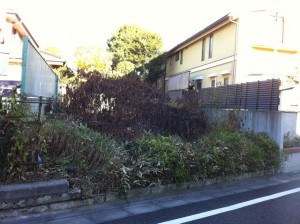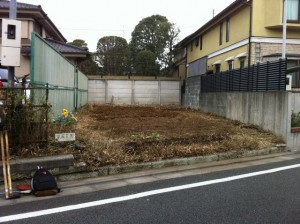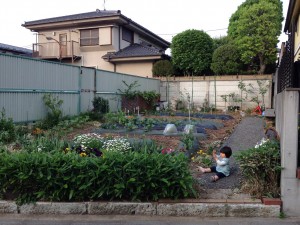“We are in the Asian century, and the era of Africa is dawning. Why bother with hassles and the peculiar language and business practices in ageing Japan? Learn Mandarin or Swahili and don’t miss out on the next gold rush!”
Naturally, many business startups are racing to growing continental markets, with India and ASEAN being expected to overtake Japan in GDP. Some enthusiasts even foresee the emergence of an Asian market 20 to 30 times the size of Japan. But does jumping on the bandwagon and rushing off to Singapore or Hong Kong promise any success?
Please don’t take us wrong. It is indeed wonderful to see Asians and Africans escape poverty and strive toward prosperity through business. Entrepreneurs really should visit those countries and get a personal feel for the dynamic energy there. As a matter of fact, aspiring Japanese companies themselves are flocking into Asian markets and some have already begun M&A and investment in startups with deep local roots.
Following Confucius, in Asia they say: “If you are planning for a year, sow rice. If you are planning for a decade, plant trees. If you are planning for a lifetime, educate people”. So the question is whether you just want to sow rice or accomplish something greater.
Japan as a strategic base for eyeing the global market
Careful observers will notice the new business potential of Japan today in a very different way than back in the go-go 1980s during the run-up to the asset bubble. In fact, Japan is one of the best vantage points for global business operations in Asia’s emerging markets.
Surprisingly or not, Tokyo is home to the third largest number of companies listed on the Fortune Global 500, after the United States and China. Moreover, Japanese manufacturers like Panasonic, Honda, Toyota, and Nissan are accelerating the reshoring of their production back to Japan, convinced that this move actually reinforces their competitive advantage. In defiance of the protracted TPP negotiation, foreign manufacturers are also building up their manufacturing bases in Japan.
The reasons are not simply the rising labor costs in China or the weakening of the yen that had lasted until the recent reversal. Until recently, attention had been confined to the limitations of the Japanese economy. Fortunately, deregulation of retail markets, corporate tax cuts, and other genuine reforms are making a lasting impact in rising real wages and the steady recovery of the Japanese economy from its deflationary spiral.
Refined markets for bolstering your brand
Top brands in the world acknowledge the fact that they cannot lead the global market without succeeding in Japan. To put it bluntly, a blessing from the demanding and refined consumers in Japan promises acceptance from most consumers in the world. Naturally, international brands compete to open shops along the streets of Omotesando, Aoyama-dori, and Meiji-dori. The wealthy individuals and investors around the world are on a buying spree with real estate in Ginza as a home for leading Japanese brands and Roppongi as a favorite district of foreigners. Considering the low return of some of these properties, they are clearly investing in Japan as the launch-pad for their brands.
Many foreign companies are also striving to incorporate the fashion and taste of Japanese into their products, because they become also popular in Thailand, Indonesia, and so forth. The power of Japanese taste is not limited to fashion. Dollar-shops called hyakuen-shops are all-time favorite spots for Asians, Westerners, and other foreign guests alike. In barely restrained excitement, they say: “How wonderful to be able to enjoy that quality and practicality for that price!”
The attractiveness of Japanese quality often causes surprising trouble. Chinese tourists are snapping up so many nappies and rice cookers that shops end up limiting the purchase by each client and flights are delayed because of the trouble loading all the items purchased. With their newly acquired wealth, Asians head straight to Japan, the world’s shopping mall, where they can safely enjoy shopping without worrying about dishonest sellers or a foreigner price.
Despite the weakness in the overprotected agriculture sector in general, some aspiring agribusinesses are actually targeting the international market by exploiting the Japanese brand of safe and tasty food. The trend will accelerate as companies from different sectors freely compete to exploit consolidated and larger pieces of land.
Exploiting Japan’s innovation potential
China is expected to move up the supply chain in Asia from simple assembly to design and other advanced processes. But this tide is not necessarily pushing Japan to the margin of Asia. In absolute terms, Japan’s innovative capacity is intact. In fact, Lamborghini, L’Oreal, Bosch, 3M and other leading companies chose to establish their research centers in Japan, perhaps considering that the country maintains the top rank in the R&D budget per GDP, the highest ratio of researchers among the population, and in the number of Triadic patent applications (i.e., US, EU, and Japan). Japan is likely to underpin global strategies as a mature and reliable innovation base.
Staying a step ahead of market needs based in the leading ageing society
Japan faces an unprecedented challenge as the world’s fastest ageing country. But business is thriving in its efforts to provide solutions to the relevant problems. Many useful medical and health products that are unknown to the world can be found here in Japan where over a quarter of the population is aged 65 or more and more diapers are sold for adults than those for infants. Perhaps the ageing of the African continent may be long years ahead, but the rest of the world is bound to gray. Traditional business models that used to cater to young customers will become obsolete. Friendly competition with products and services enjoyed by Japan’s elderly will hone your leadership in the ageing global market.
Attractive business hub
The United Nations predicts that Tokyo will remain the world’s largest megalopolis, followed by Delhi and Shanghai. Information technologies have supposedly freed humans from the restraints of distance. On second look, however, clusters of creative people are proving ever more important. Perhaps that is why many world-class creators and artists have their bases in Tokyo.
Contrary to the stereotype as an expensive place, Tokyo offers office space for a third the price in Hong Kong and half that found in Singapore. Renting in Tokyo stands at 2/3 that of Shanghai and Seoul. In popular residential areas for foreigners, a rent is lower than in Hong Kong and Singapore and on a par with Shanghai.
The Japanese logistic system is more cost-efficient than that of Germany, France, the UK, and any other major countries of similar size. Likewise, the cost of the Internet is the least per unit of data. The Shinkansen bullet-trains that connect all corners of Japan have an average delay as little as 36 seconds per day in total. Foreign guests are impressed when there is an announcement to apologize for a minute of delay. Over the past 50 years, the Shinkansen never caused a fatal accident – although there has been an unfortunate suicide on the train.
In defiance of Japan’s stereotype as a reclusive nation, the inward FDI ratio is rising sharply and about to take over China’s top position – a clear proof of the incentives and investment environment that go beyond empty slogans.
Deep-rooted business investment as an important part of your life
Business investment is an important part of your life. And so it is only natural to decide your destination by taking the environment into account, as well. Investors in other destinations must ever breath contaminated air, hire chauffeurs or catch taxis to go anywhere, and must ever worry about kidnapping. These Asian cities are often flooded because of the underdeveloped drainage system. Many families dare not walk on the street alone and lead a stressful and confined life with fellow expats. Both foreigners and Japanese appreciate the safe, comfortable, and enjoyable environment that Japan provides for both the elderly and children. In 2015, Tokyo topped the MONOCLE’s most livable city ranking. For instance, you can simply walk to enjoy a tasty meal just around the corner. Tap water is potable. Roads are clean. There are wide choices of international schools and art galleries. If you want to enjoy your life with a long-standing business, rather than chasing after quick profits, Tokyo is a highly recommended destination.
A strategic hub that stands out in the era of Asia and Africa
Asia and Africa no doubt have great potential. As a matter of course, the growing market is so huge and diverse that the various regions warmly welcome entrepreneurs seeking success in Myanmar, Nigeria, China, India, Singapore, and Japan alike. At the same time, those who blindly follow the herd in deciding their destinations are doomed to fail. Only a few companies can cover the entire regions and they still need strategic focuses.
Japan, in particular Tokyo, is one of the promising strategic hubs for many business operations eyeing the extensive markets in Asia. Far from disappearing in a booming Asia, Japan will continue to play an important role as your reliable business partner.



